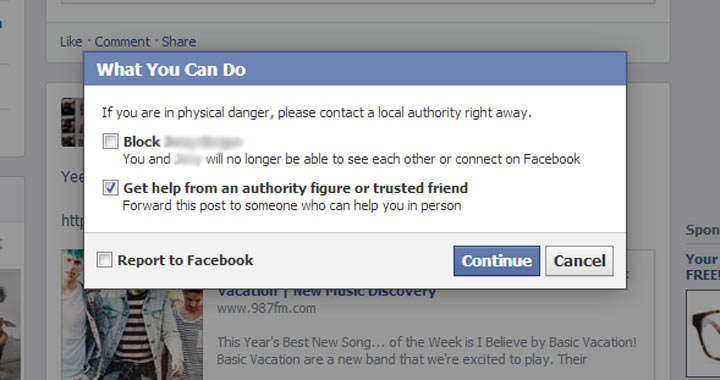TORONTO – Canadian authorities agree cyber-bullying’s a problem. They just aren’t sure what to do about it – or, in some cases, how it’s defined.

One year ago, NDP MP Dany Morin said bullying in Canada was at a “breaking point” and asked the government to develop a national anti-bullying strategy.
His motion came days after the suicide of British Columbia teen Amanda Todd, who endured years of in-person and cyberbullying.
Since then, Canadians have read of the bullying-related suicide of Nova Scotia’s Rehtaeh Parsons in April, and Saskatchewan teen Todd Loik, insulted through Facebook messages and cellphone texts, who killed himself last month.
While provinces have introduced a patchwork of legislation, Federal Justice Minister Peter MacKay still hasn’t implemented the national cyberbullying legislation that’s been promised. But he says “it’s coming.”
Nova Scotia’s new law has come under fire by those who say it hurts free speech more than it helps the victims of bullies.
Read more: Who the new cyberbullying law will help and hurt
In the meantime, some social networks are taking steps of their own.
Next month is the one-year anniversary of Facebook’s Canada-wide anti-bullying campaign. Nicky Jackson, the social network’s privacy manager, says they’re still trying to make teens aware of how to report abuse and where to get help.
A feature launched two years ago lets Facebook users forward bullies’ taunts to friends, authority figures and/or Facebook itself.

Get daily National news
Clicking on a button adjacent to the hostile content in question – a wall post, for example – will allow the user to report it. A “support dashboard” pops up, advising him or her to contact local authorities immediately if in physical danger, and provides an option to “block” the bully in question. It will also provide an option to “Report to Facebook” in which case the status of your report and the details of how your report was addressed will be displayed in a log.
Another option is to “Forward this post to someone who can help you in person” – via Facebook or email.
This “social reporting flow” includes a pre-written, editable message such as:
“Hi Heather. Ashley is bothering me online and I’m not sure how to respond. Can you please help?”
“This bridges the “online/offline gap,” Jackson said. “It creates a digital record of what happened … so there’s a measure of accountability,” she said. “Teens use this more than anyone and it’s one of most effective tools that they have. They really love this because it’s private and shows people what they’re dealing with.”
Jackson notes the bully isn’t aware that his or her message has been forwarded to a third party – nor would parents be notified.
“Not every teen wants their parents involved … it’s not a healthy situation in every case,” said Jackson. “So a teen is autonomous on Facebook,” though the tool allows the user to get in touch with outside organizations who could encourage parental involvement as appropriate.
There’s always the possibility that a teen uses this tool to misrepresent a situation, and forward a complaint accusing an innocent person of bullying, said Dr. Neil Gottheil, clinical director at Turning Corners Psychological Services and clinical psychologist at the Children’s Hospital of Eastern Ontario,
“It’s really important … to recognize some may be misinterpretations, some may be innocent mistakes that weren’t meant to be bullying, and in other cases it might be, more rarely, a set-up by kids trying to use this to bully others.”
But he thinks these are positive tools.
As well, Facebook’s “Be Bold Stop Bullying” page tries to get bystanders who witness bullying to speak up, and provides resources for teens, parents and teachers on bullying prevention.
A new pilot program partnering Facebook with the state of Maryland lets a designated school official report questionable or prohibited language to Facebook.
Despite fears of subjectivity on the part of the school official or freedom of speech issues, Jackson emphasized the content would have to violate Facebook’s policies in order to be removed. It’s different than regular reporting because school staff will have a “more streamlined way to report possible instances of cyberbullying among their students,” according to Maryland Attorney General Douglas Gansler.
“If something is going on in the classroom that could disrupt overall learning, that’s where we want to really intervene and help. And I think we’re really committed to working with school districts all over to do that.”
Facebook Canada has no immediate plans to bring this north of the border, but Jackson said she is “looking forward to working with Canadian officials to do something similar.”






Comments